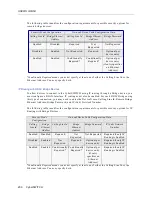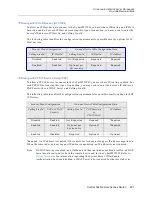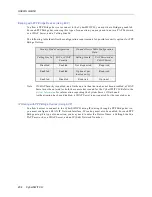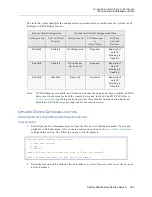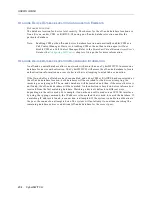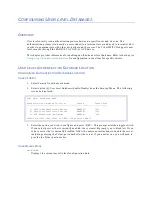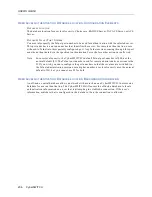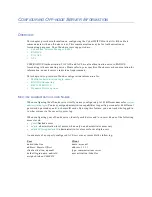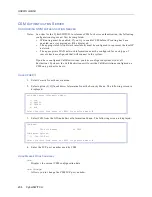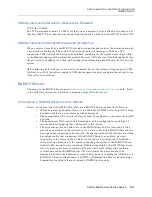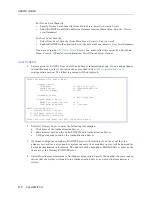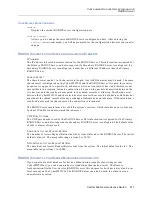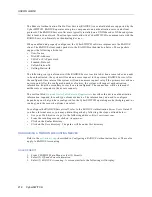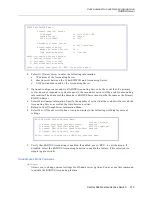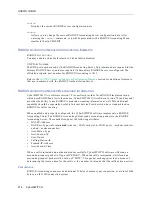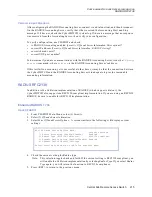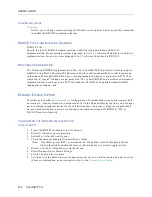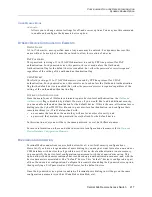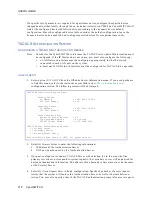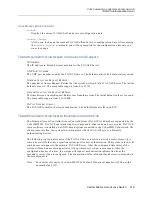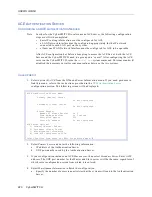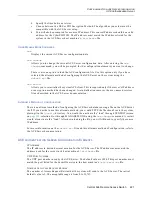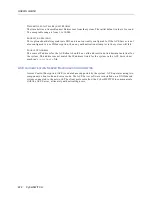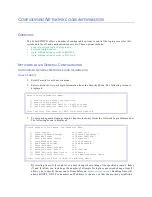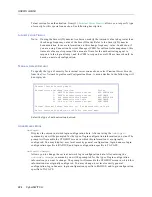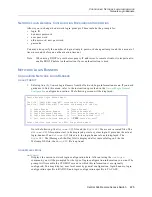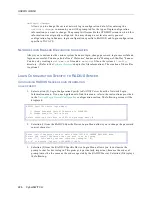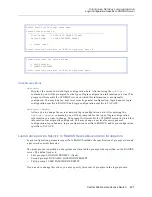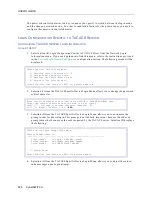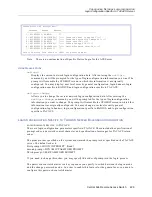
USER’S GUIDE
214 CyberSWITCH
radius
Displays the current RADIUS server configuration data.
radacc
Allows you to change the current RADIUS Accounting Server configuration data. After
entering the
radacc
command, you will be presented with a RADIUS Accounting Menu
similar to that in CFGEDIT.
RADIUS A
CCOUNTING
S
ERVER
C
ONFIGURATION
E
LEMENTS
RADIUS A
CCOUNTING
You may enable or disable this feature. The default is disabled.
UDP P
ORT
N
UMBER
The UDP port number used by the RADIUS Accounting Server. This information is required for the
Primary RADIUS Server, and also required if a Secondary RADIUS Server is configured. The
officially-assigned port number for RADIUS Accounting is 1813.
Refer to the
RADIUS Authentication Server Configuration Elements
section for additional elements
that are in common with the RADIUS Authentication Server.
RADIUS A
CCOUNTING
S
ERVER
B
ACKGROUND
I
NFORMATION
CyberSWITCH UAA software version 7.2 (or earlier) provides for a RADIUS implementation
which uses RADIUS only for Authentication. CyberSWITCH UAA software version 7.3 (and beyond)
provides the ability to use RADIUS to maintain accounting information as well. This additional
capability should be especially useful to Internet Service Providers who have standardized on
RADIUS for call accounting.
When enabled and properly configured, the CyberSWITCH software implements a RADIUS
Accounting Client. The RADIUS Accounting Client sends accounting packets to the RADIUS
Accounting Server. These packets support the following attributes:
•
NAS-IP-Address
•
NAS-Port-Type (in format abcdd, where a = WAN card slot, b=WAN port, c = modem card slot,
and dd = modem number)
•
Acct-Status-Type
•
Acct-Session-Id
•
User-Name
•
Calling-Station-Id
•
Framed-IP-Address
•
Acct-Session-Time
When a call is initiated and authenticated successfully, CyberSWITCH software will send an
accounting-request packet to flag a call “START”. When the call is terminated, it will send an
accounting-request packet with a value of “STOP”. This packet exchange provides a means of
determining the session time for the call (i.e., the number of seconds that the call has been active).
P
ERFORMANCE
RADIUS Accounting consumes an additional 32 bytes of memory per connection, or a total of 6144
bytes on a full, 192-connection system.

